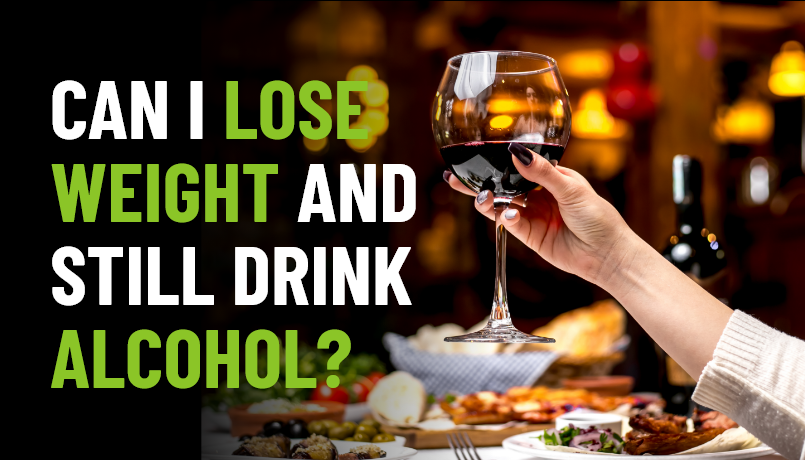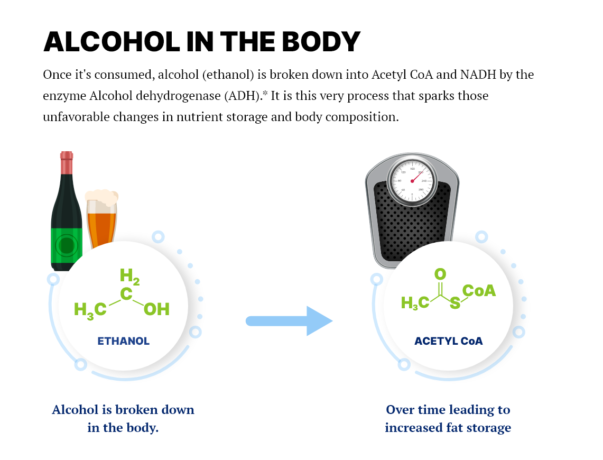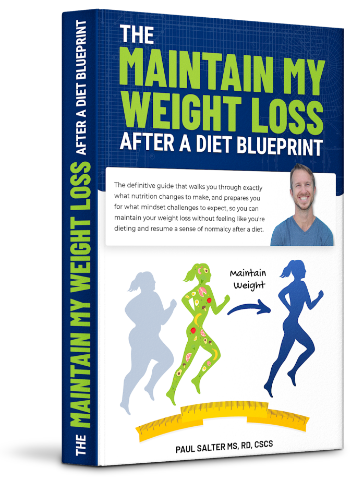Can I Lose Weight and Still Drink Alcohol?

Yes, you can lose weight and still drink alcohol. But are the negative effects of drinking alcohol while dieting worth this short-term commitment? Although you can lose weight and still drink alcohol, this article will detail the impact alcohol has on fat loss. I will provide you with the necessary information to implement a sustainable approach to weight loss without feeling overly restrictive.
Weight Loss and Alcohol: A Give and Take
With any decision in life, there’s always a trade-off.
When it comes to losing weight and drinking alcohol, yes, you can do so, but not without a tradeoff.
Even if you augment your macronutrient and calorie intake in an attempt to compensate for drinking alcohol while on a diet, the effect alcohol has on fat loss and fat storage runs much deeper than simply a calorie-for-calorie exchange.
The remainder of this article will outline the multiple ways consuming alcohol can hold you back from maximizing weight and body fat loss during a diet.
Alcohol Leads to A Lot of Extra Calories
Alcohol is nearly twice as calorie-dense as your favorite carbohydrate, meaning it provides quite the caloric punch for such a tiny serving.
One gram of carbohydrate provides four calories per gram.
One gram of alcohol, however, provides seven calories per gram.
Even if you opt to take the approach of subtracting carbohydrates from your total daily intake on the days you’ll be consuming alcohol, your overall calorie intake will still be higher due to alcohol’s calorie density.
And since the golden rule of weight loss is to be consuming fewer calories than you burn, frequent alcohol consumption makes it difficult to stay in the appropriate (and necessary) negative energy balance to lose weight.
Furthermore, when you consume alcohol, your cravings rise and inhibition declines, which means you’re more prone to grazing and snacking on calorie-dense foods.
When was the last time you were a few drinks deep and craved carrot sticks and celery…?
Exactly.
Alcohol Promotes the Prioritization of Fat Storage
Alcohol is a toxin.
Period.
Your body’s response after ingesting alcohol is to get rid of this toxin as soon as possible.
Buckle up for a quick crash course in chemistry…
It’s helpful to understand how your body responds to alcohol consumption by thinking of the collective processes that regulate digestion, absorption, and storage as a multi-button dashboard.
On this metabolic console is a large, red “pause” button – similar to the ones you see on a treadmill. When you consume alcohol, your body pushes that pause button. As a result, nutrient regulation (what you consume and how your body uses it for energy) is put on hold as the body shifts its priority to processing the alcohol.
How This Process Works

Once consumed, alcohol is broken down into acetaldehyde and something called nicotinamide adenine dinucleotide (NADH) by the enzyme alcohol dehydrogenase (ADH).1
It’s this very process that sparks unfavorable changes in nutrient storage and body composition.
As the graphic above shows, the end product of alcohol breakdown is acetyl-CoA. It is a molecule that’s heavily involved with fatty acid synthesis, or the creation of fat molecules. An excessive build-up of acetyl-CoA can lead to increased formation of fatty acids, which eventually leads to increased fat storage.
Additionally, an increase in NADH (produced as a result of alcohol breakdown) signals to the body that there’s a lot of energy (calories) available. The body naturally wants to store that energy. This means that an increase in NADH also favors fatty acid formation and storage.1
Over time, these molecules create a change in your body to prioritize fatty acid storage.
It probably goes without saying, but this change presents quite a challenge if you’re trying to lose stubborn body fat…
Alcohol and Fat Loss: What the Research Shows
In a groundbreaking study published in the Journal of Clinical Investigation, researchers observed the effects of alcohol ingestion on carbohydrate, fat, and protein metabolism.
The researchers assessed fatty acid and glucose (carb) usage over a four-hour time span. To do it, they infused the subjects with simultaneous delivery of both glucose and insulin through an IV. Researchers then collected blood samples at 0, 30, and every 15 minutes thereafter to determine how the subjects were using fuel.
Two hours into the experiment, the glucose infusion was replaced with an alcohol infusion equivalent to two standard drinks (cheap date?).
Upon the alcohol infusion, rates of fat oxidation dropped 79 percent!2 So, instead of using fat for fuel, the subjects’ bodies actually began using alcohol for energy. Rates of fat oxidation remained depressed for more than four hours after the alcohol infusion, which is bad news for anyone who wants to burn fat.
Although there is a huge variation in the speed at which each individual body can break down and rid itself of alcohol, it’s probably safe to assume that even a small amount of alcohol will stay in your body long enough to put a dent in fat breakdown.3
The same researchers also infused subjects with alcohol and glucose at the same time.
Why is this relevant?
Since many of us like to have a few carbs alongside our drinks, this next bit of information is particularly telling. The results demonstrated that simultaneous infusion of alcohol and glucose reduced fat-oxidation rates to nearly 0 milligrams per minute!2
In practical terms, consuming chips and salsa with your beer during the big game is actually dropping your fat-oxidation rates to nearly zero. If you pair carb-heavy snacks and alcohol often, you’re stuck with a lot of excess calories that basically aren’t being used. That means they’re almost certainly going to be stored as fat.
Yes, You Can Drink Alcohol and Lose Weight…
…but I don’t recommend it.
The research is clear: alcohol literally stops fat loss dead in its tracks and promotes fat storage in the meantime for a decent period of time. This is not in line with the goal of a diet: losing as much fat as possible during this short period of time (in a sustainable manner, of course).
When teaching on this very topic with my one-on-one clients and members of The 5% Community, I try to reinforce the temporary nature of the diet phase (most of my clients find the most success dieting for six to eight weeks) and that by temporarily putting a pause on alcohol consumption, they’ll be able to maximize every pound and inch lost possible during this short phase.
How To Mindfully Include Alcohol
However, if cutting alcohol out completely goes against the three-ingredient recipe of sustainable weight loss we teach (individualization, simplicity, and flexibility*), then here’s how I recommend you mindfully include alcohol while trying to lose weight:
- Stick to no more than two drinks per occasion.
- Limit yourself to one occasion per week.
- Choose drinks with calorie-free mixers.
- Prioritize preparing meals 100% outright (versus bulk meal prep) on the days you do drink to minimize the likelihood of grazing and overeating.
*If you want to learn how to build a sustainable nutrition plan so that you can effortlessly eat with confidence to feel, look, and be your best, click here to view our live training on this topic!
And when you’re ready to follow a proven path to rebuild your relationship with food, improve your self-care habits, and rewire your brain for positive, powerful action, click here to join The 5% Community and join women just like you who are working to feel, look, and be their best!
References
- Bullock, C. (2010). The Biochemistry of Alcohol Metabolism—A Brief Review. Biochemical Education, 18(2), 62-66.
- Shelmet, J.J., Reichard, G.A., Skutches, C.L., Hoeldtke, R.D., Owen, O.E. and Boden, G. (1988). Ethanol Causes Acute Inhibition of Carbohydrate, Fat, and Protein Oxidation and Insulin Resistance. Journal of Clinical Investigation, 81(4), 1137-1145.
- Cederbaum, A. (2012). Alcohol Metabolism. Journal of Clinical Liver Disease, 16(4), 667-685.
Share this post
 Paul Salter
Paul Salter
